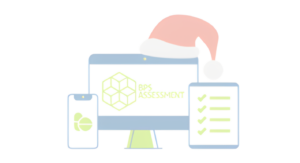As a foundation doctor, preparing for the Prescribing Safety Assessment (PSA) is a crucial step in your medical career. With the exam date fast approaching, it’s important to start your preparation now (if you haven’t already) to ensure you pass with confidence. In this blog, we’ll cover essential tips and resources to help you succeed, including valuable tools from both the official PSA platform and the BPS Assessment learner portal.
Create a Study Plan
As a foundation doctor, your schedule is likely already packed with clinical duties, on-call shifts, and the demands of ongoing learning. Finding time to prepare for the PSA can seem daunting, but with careful planning, it’s entirely manageable.
Start by creating a realistic study plan that fits around your busy schedule. Break down the content into manageable chunks and allocate time each week to focus on specific topics. It’s important to set a realistic time frame.
Familiarise Yourself with the Official PSA Platform
One of the most important steps in preparing for the PSA is getting to know the official PSA platform. Here’s how you can make the most of it:
- Explore the PSA Platform: Spend some time navigating the official PSA website. Familiarise yourself with the layout, available resources, and how to access different sections. This will ensure that you’re comfortable with the platform on exam day.
- Review the FAQs: The PSA platform has a comprehensive FAQ section that addresses common questions about the exam, including its format, types of questions, and technical requirements. Reviewing these FAQs will give you a clearer understanding of what to expect and how to handle any issues that may arise during the exam.
- Use Official Practice Papers: The official PSA website provides practice papers that closely resemble the actual exam. Working through these papers will give you a realistic sense of the exam’s difficulty and timing. It also helps you get used to the exam interface, including the abbreviations, the built-in calculator etc so you’re not caught off guard on the day of the test.
Utilise BPS Assessment Learner Portal Resources
In addition to the official PSA resources, the BPS Assessment learner portal offers a range of tools specifically designed to help you prepare for the PSA. Here’s how you can benefit:
- PSA Prep: Nine comprehensive eLearning sessions specifically designed to support those sitting the PSA. These sessions cover essential topics and are completely free to access.
- Practice Papers: The learner portal features practice papers that simulate the real exam environment, helping you become familiar with the types of questions you’ll encounter. Regular practice will build your confidence and improve your speed and accuracy.
- Other Prescribing Resources: The portal also offers other prescribing resources that cover key prescribing topics, such as polypharmacy, menopause and Antimicrobial stewardship. These modules are designed to reinforce your understanding of complex concepts, making your learning experience more engaging and effective.
- Detailed Feedback: Take the time to review the detailed feedback provided in the above resources. This feedback will highlight your strengths and identify areas where you need further improvement, allowing you to tailor your study plan accordingly.
Focus on Time Management
Time management is a critical aspect of the PSA. The exam is time-limited, and you’ll need to work efficiently to complete all the questions within the allotted time. As you practise, pay attention to how long it takes you to answer each question and work on strategies to improve your speed without compromising accuracy. Regular timed practice sessions can help you develop a sense of pacing that will be invaluable on exam day.
Review Key Prescribing Guidelines
The PSA assesses your ability to prescribe safely, which means you’ll need to be familiar with key prescribing guidelines. Make sure to review the most up-to-date clinical guidelines, including those on antibiotic use, drug interactions, and managing chronic conditions. Make sure you are familiar with NICE and BNF (in the UK) as understanding these guidelines will not only help you pass the PSA but will also enhance your clinical practice.
Join Study Groups or Seek Peer Support
Studying with peers can be incredibly beneficial. Consider joining a study group where you can discuss challenging topics, share resources, and test each other’s knowledge. Peer support can also provide motivation and make your study sessions more enjoyable.
Stay Calm and Confident
Finally, remember to stay calm and confident as the exam approaches. You’ve worked hard to reach this point in your medical career, and with the right preparation, you’re well-equipped to pass the PSA. Make sure to get plenty of rest before the exam, and approach the test with a positive mindset.
Just remember, make a plan, familiarise yourself with the official PSA platform, and take advantage of the BPS Assessment learner portal. By following these tips, you’ll be well on your way to passing the PSA and advancing in your medical career with confidence. Good luck!




